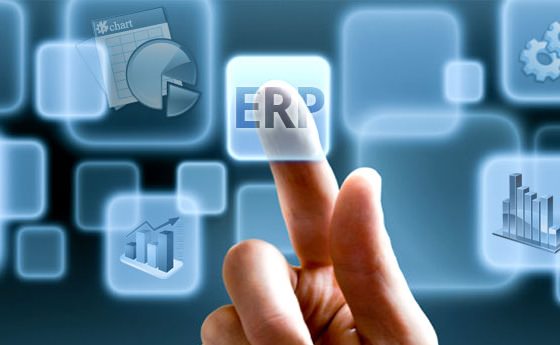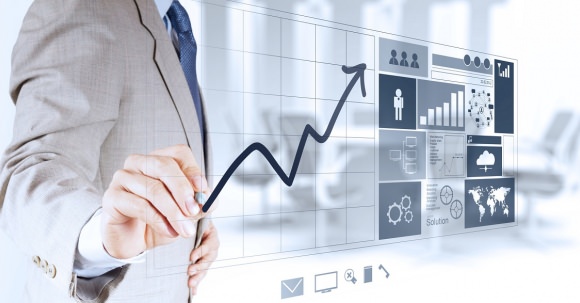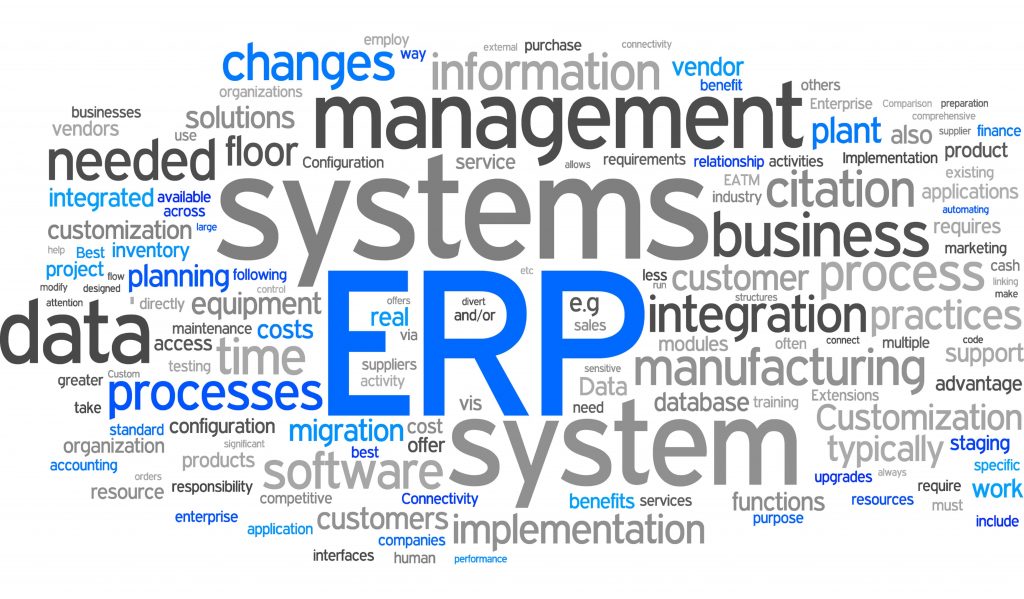Enterprice Resource Planning
- Home
- Enterprise Resource Planning
MORE ABOUT ERP Process Integration
Enterprise Resource Planning (ERP) systems integrate internal and external management information across entire organization, embracing:
Enterprise Resource Planning software organizes and integrates day-to-day business processes such as financial, procurement, production, project, human resource, and other tasks. It delivers real-time, accurate data that enables stakeholders to make informed business decisions based on the information provided. ERP collects a company’s shared transactional data from numerous sources, eliminating duplicate data and ensuring data integrity.
- Financial and Business Performance Management
- Inventory Management
- Sales Order Processing and Receivables Management
- Purchasing and Payables Management
- Production Planning, Shop Floor Control and Manufacturing
- MRP and Automated replenishment
- Project Management with Time and Expenses Management
- Purchase Requisition Management
- Sales forecasting and Demand planning
- Advanced Cash Flow management
- Fixed Asset Management
- Business Intelligence and Business Scorecard mapping


CorporateServe Services
CorporateServe provides implementation, configuration, development and integration services for the following ERP Applications. Please click on the relevant product links for more information
- SAP
- EPICOR
- Microsoft Dynamics 365
How Does ERP Work?
In general, enterprise resource planning (ERP) makes a centralized database to streamline numerous corporate operations and decrease human labor. An ERP system often includes dashboards that allow users to view real-time data collected from across the organization to assess productivity and profitability.
For example, an ERP supply chain software may take a customer order and immediately send it to the distribution center that gets best positioned to finish the transaction on time. You’ve probably seen the consequences of this technology in action if you’ve ever noticed that return addresses from the same seller aren’t always the same. Your ERP may be able to analyze inventory levels, delivery timescales, and other data to determine which distribution center is the most productive and cost-effective at fulfilling an order, depending on the system you choose.
Data get typically walled off by divisions and access across a corporation without an ERP. Data from many departments may be readily shared and viewed across a firm using an ERP. This data richness and simplification can help you create company goals and cut down on time spent by staff on tasks that could get automated.
Importance of ERP Enterprise Resource Planning
Have you ever considered why so many businesses require ERP software? What exactly are they going to do with them? According to the most recent figures, 81% of organizations are in the process of or have already implemented ERP. If the systems were not advantageous to their operations, they would never consider ERP in the first place. Let’s look at the benefits of an ERP system for your business.
- Increasing Productivity
Enterprise Resource Planning (ERP) solutions get used to automate a range of business operations that would otherwise require a long time and effort to do manually. Tracking inventories, allocating tasks to staff, monitoring working hours, distributing salaries, and generating financial reports are all examples of repetitive processes that can get automated.
Your staff can focus more on their main deliverables without bothering each other by automating operations. For example, the marketing team can generate daily web traffic data without requesting it from the IT department. The accounting department can develop sales-related reports without relying on sales managers.
- Collaboration in the Workplace
Cross-departmental collaboration is an important and frequently required aspect of every business. A company’s ERP system eliminates barriers between departments. A department can access data from other departments if the data get housed in a centralized and uniform ERP software. Over the internet, SaaS or cloud-based ERP can extend existing inter-team communication across many offices in various regions.
- Bringing Down Operating Costs
ERP systems also assist businesses in reducing operating costs. Because the operating operations are automated, numerous interruptions, delays, and malfunctions can get predicted in advance. All of the complex work may get accomplished faster, resulting in a shorter lead time. ERP solutions can also help businesses save money by automating a range of day-to-day processes.
- Data Security Improvements
ERP solutions include firewalls and access controls. The system concentrates all data in one location for easy monitoring by the access points. Employees with limited access permissions might get granted by administrators in charge of the company’s data. HR managers, for example, can keep some sensitive information private and only share it with stakeholders while allowing employees to see their financial details.
Admins can also rapidly deactivate laid-off employees’ access while granting new staff access. User activities are also displayed in ERP solutions, allowing administrators to spot unlawful or suspect activity patterns in the system.
- Predicting with Realism and Accuracy
The capacity to produce accurate forecasts is one of the most critical aspects of corporate growth. Stakeholders rely on reports to generate estimates that influence their decisions. As a result, getting real-time, comprehensive, and reliable reports is critical for enterprises. All of this can get made by using ERP.
ERP reporting tools employ advanced filters and analytics to eliminate data discrepancies. Additionally, the technology ensures that the data obtained is generated in real-time. Accurate business reports will assist stakeholders in making the best business decisions possible.
CorporateServe Services
CorporateServe offers wide range in obtaining licenses of ERP products and in their implementations. Apart from offering generic ERP systems CorporateServe has developed special skills to implement ERP systems in following complex industries:
- Automobile
- Books & Publishing
- Chemicals & Pharma
- Discrete Manufacturing
- Education

Let’s get started
Are you ready for a better, more productive business?
Stop worrying about technology problems. Focus on your business.
Let us provide the support you deserve.
ACT TODAY FOR BETTER TOMORROW

United States
- CorporateServe Solutions, Inc.
- 8 The Green, Ste R, Dover, Delaware 19901, USA
- sales@corporateserve.com
- +1(251)910-8815
- +1(302)572-4685

INDIA
- CorporateServe Solutions Pvt. Ltd.
- 408, Udyog Vihar, Phase-IV, Gurgaon,Haryana-122015, INDIA
- sales@corporateserve.com
- +91-9818099176
- +91-9871247733
- +91-9899102817
- +91-124-406 3583
- +91-124-406 6716